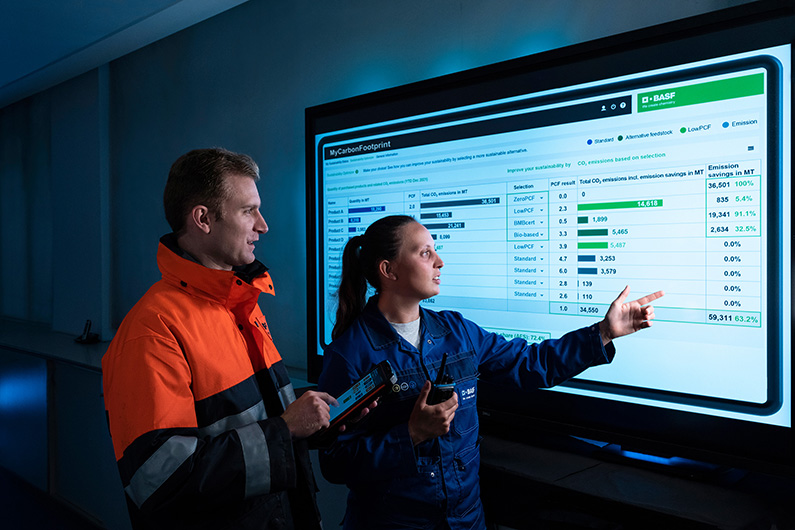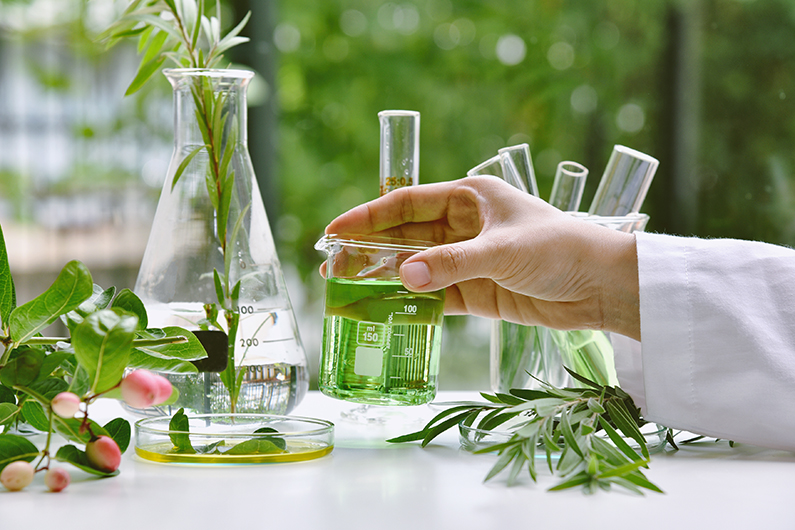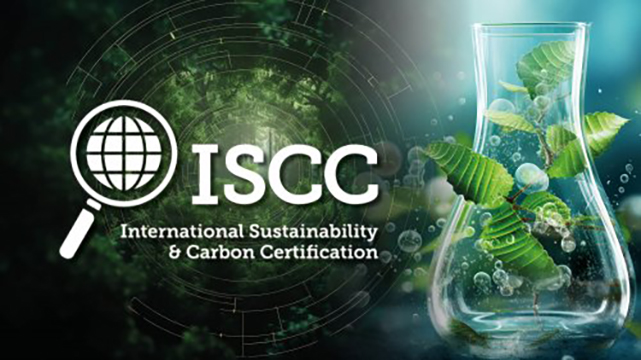More news
- New Managing Director of BASF’s Coatings division
- Global New Material International (GNMI) to acquire Merck’s Surface Solutions busine...
- Delta Coatings unveils plans for global eco-friendly HQ and plant
- PPG recognised for sustainability progress by FTSE4Good for sixth consecutive year
- ChemQuest expands Business Development team, names four VPs

- Comprehensive insight for customers into sustainability status of their individual purchasing portfolio at BASF
- Information about individual carbon footprints and renewable raw material shares1 of purchased products
- Rapid impact calculation of switch to more sustainable product variants
- Support for customers in achieving their sustainability goals
BASF has released a new digital application designed to help customers gain a better overview of the sustainability status of the product portfolio they purchase from BASF. It also helps customers identify the best BASF solutions to reach their sustainability targets with regard to CO2 reduction and/or use of renewable raw materials. The app called “MyCarbonFootprint” contains data on over 700 selected large volume BASF products, including pharma ingredients, amino resins, butanediol and derivatives, acids, polyalcohols, acetylenics, carbonyl derivatives and amines. It is initially available to certain BASF customers who purchase products included in MyCarbonFootprint. Currently, more than 50 customers are already using the app.
Customised overview for each customer
MyCarbonFootprint informs customers about the individual cradle-to-gate product carbon footprint (PCF) of the BASF products they purchase.2 The app furthermore indicates the share of renewable raw materials used in the manufacture of these products. The data is presented in a customised way for each customer: Depending on the purchased quantities of a selected product, MyCarbonFootprint calculates the CO2 emissions, the product carbon footprint and the share of renewable raw materials according to the respective customer’s purchasing portfolio at BASF.
Optimising the carbon footprint and renewable raw material share
With the help of MyCarbonFootprint, customers can determine how adjustments in their purchasing portfolio affect their sustainability status in terms of CO2 emissions and the use of renewable raw materials.
For example, MyCarbonFootprint calculates the potential reduction in CO2 emissions when a product variant with a lower carbon footprint is selected instead of the previously purchased product. MyCarbonFootprint also shows BASF customers various alternatives to increase the proportion of renewable raw materials in the value chain by choosing a suitable product variant.
“We developed MyCarbonFootprint to create the transparency that our customers need to pursue their CO2 emission reduction goals and to select the best sustainable product variants from the BASF portfolio to achieve their desired sustainability positioning,” explains Niels Möller, Global Strategic Marketing, Operating Division Intermediates, BASF. A team led by Möller invented the innovative IT tool and developed it to market maturity.
BASF portfolio offers various sustainable product variants
MyCarbonFootprint provides an overview of the various sustainable product variants from the BASF portfolio. BASF customers can for example reduce their CO2 emissions by using BASF’s low-PCF products. These products have a significantly reduced product carbon footprint based on a specific customer request or compared to a reference value. The low-PCF portfolio includes, among others, bio-based or biomass balanced products (BMB), which can help customers achieve CO2 emission reductions compared with fossil standard products. In some cases, BASF additionally offers net-zero products, which have a PCF of zero or less than zero.3
Switching to BMB products is also an easier way for customers to increase the share of renewable raw materials in the value chain. In the BMB approach, BASF feeds renewable raw materials into its Verbund in the very first steps of chemical production. A corresponding share of these raw materials is then attributed to specific sales products by means of a certified mass balance method. Certification of BASF’s biomass balanced products is carried out according to recognized standards like REDcert2 or ISCC PLUS4. Being identical in quality and properties to fossil standard products, biomass balanced products are “drop-in” solutions. Customers can use them without having to adapt their existing manufacturing processes.
Video about “MyCarbonFootprint”: “MyCarbonFootprint”: BASF dashboard enables customers to procure sustainably. – YouTube
1 Physical or attributed via a certified biomass balance approach.
2 The product carbon footprint (PCF) values displayed in MyCarbonFootprint come from a digital PCF calculation solution and methodology developed by BASF. BASF’s PCF calculations follow the requirements and guidance given by ISO 14067:2018. In a methodology review, TÜV Rheinland has certified that BASF’s PCF calculation solution and methodology is scientifically-based, is in accordance with ISO 14067:2018
3 The product carbon footprint (PCF) of BASF’s net-zero products is zero or lower than zero in a cradle-to-gate assessment. For example, if biomass is used in the production of products, the carbon bound in the biomass reduces the cradle-to-gate PCF. The originally determined PCF can be reduced to zero or even below zero by including the biogenic carbon of the product. The calculation does not include downstream value chain emissions such as transportation emissions from factory gate to customer, emissions from further processing and the end-of-life emissions (e.g., from waste treatment). In general, the calculation of the cradle-to-gate PCF excludes the use of external compensation measures.
4 REDcert2 and ISCC PLUS are standards for the use of sustainable biomass as raw material in the chemical industry. Regarding BASF’s biomass balance approach, certification according to these standards confirms that the biomass used is sustainable and has been fed into the production Verbund in the required amount. It also confirms that the sustainable biomass has been correctly attributed to the corresponding sales products. The certifications are awarded on the basis of on-site audits conducted by independent auditors.







